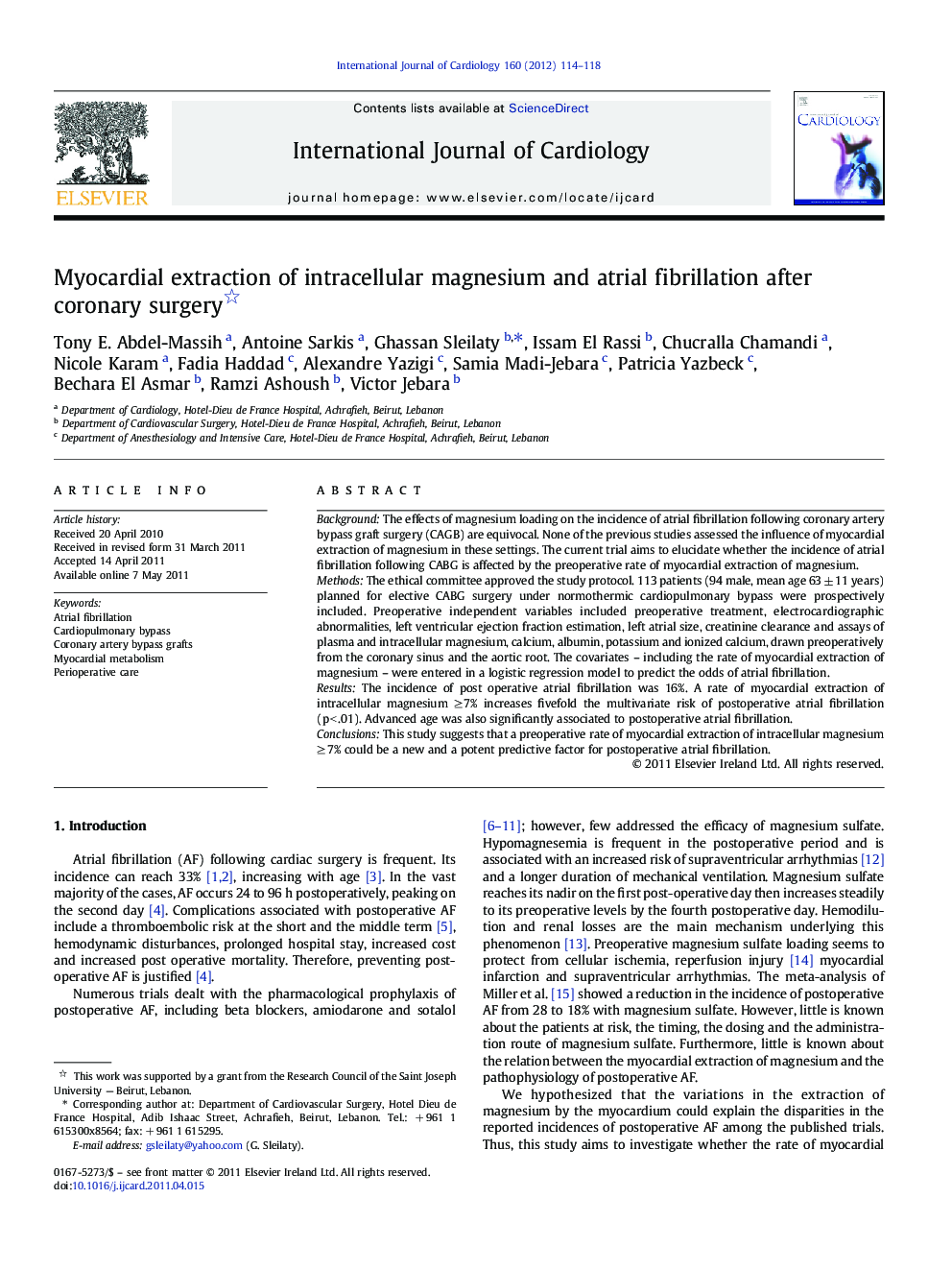| Article ID | Journal | Published Year | Pages | File Type |
|---|---|---|---|---|
| 2929844 | International Journal of Cardiology | 2012 | 5 Pages |
BackgroundThe effects of magnesium loading on the incidence of atrial fibrillation following coronary artery bypass graft surgery (CAGB) are equivocal. None of the previous studies assessed the influence of myocardial extraction of magnesium in these settings. The current trial aims to elucidate whether the incidence of atrial fibrillation following CABG is affected by the preoperative rate of myocardial extraction of magnesium.MethodsThe ethical committee approved the study protocol. 113 patients (94 male, mean age 63 ± 11 years) planned for elective CABG surgery under normothermic cardiopulmonary bypass were prospectively included. Preoperative independent variables included preoperative treatment, electrocardiographic abnormalities, left ventricular ejection fraction estimation, left atrial size, creatinine clearance and assays of plasma and intracellular magnesium, calcium, albumin, potassium and ionized calcium, drawn preoperatively from the coronary sinus and the aortic root. The covariates – including the rate of myocardial extraction of magnesium – were entered in a logistic regression model to predict the odds of atrial fibrillation.ResultsThe incidence of post operative atrial fibrillation was 16%. A rate of myocardial extraction of intracellular magnesium ≥ 7% increases fivefold the multivariate risk of postoperative atrial fibrillation (p < .01). Advanced age was also significantly associated to postoperative atrial fibrillation.ConclusionsThis study suggests that a preoperative rate of myocardial extraction of intracellular magnesium ≥ 7% could be a new and a potent predictive factor for postoperative atrial fibrillation.
